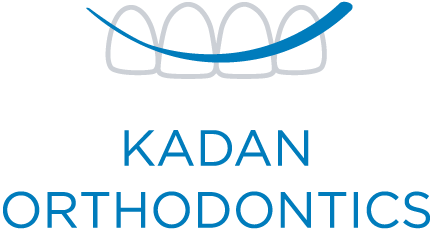What Are Braces?
Braces are orthodontic appliances, or tools, that are comprised of brackets and wires. The brackets are applied to your teeth and held in place with a special adhesive. Wires are fed through the brackets. In some cases, bands are used to achieve the best results. The bands encircle the tooth. These components work together to place pressure on the teeth and slowly reposition the teeth.
Who Needs Braces?
Wearing braces is most commonly associated with creating a beautiful smile, but the application of braces is primarily recommended to improve oral health. Gaps, crooked teeth, overlapping teeth and other cosmetic problems also allow for bacteria and plaque to develop in hard-to-reach areas. You are more likely to develop more serious problems, such as TMJ, tooth wearing, and gum disease. Orthodontic treatment is intended to resolve problems with alignment that prevent advanced dental health issues from developing.
How Long Are Braces Worn?
Most orthodontic treatment plans take one to four years. The exact amount of time depends on the individual patient’s type and extent of correction.
Will Braces Hurt?
When you first get your braces, you will have to adjust to having the brackets and wires in your mouth. Mouth sores are not to be expected as these indicate a broken or misplaced wire. Braces do apply pressure to your teeth so you may have a dull discomfort for the first one to two days after the braces are installed and after each adjustment appointment.
What is the Appropriate Age to Begin Orthodontic Treatments?
As a board-certified orthodontist, Dr. Kadan follows the recommendations of the American Association of Orthodontists. These guidelines recommend that children have their first orthodontic evaluation at seven years old. This may not necessarily be the time to implement a treatment plan, and Dr. Kadan will discuss the recommended timeline during your consultation.
For adults, braces can be used at any time to correct your smile. Simply meet with Dr. Kadan to learn more about your individual timeline for wearing braces.
What Can Happen if Orthodontic Problems Go Untreated?
Unfortunately, people who do not undergo orthodontic treatment as recommended face a higher risk of advanced oral health issues, such as gum disease, tooth decay, and bone loss. You may need bridges, dentures, and implants to resolve the problems.
What Are the Benefits of Wearing Braces?
You will have straighter, more beautiful teeth after wearing braces. Brushing and flossing will also be much easier and more effective. If you need to correct your bite, you will also be able to chew your food better which leads to improved digestion. Enunciating your words is also easier once your teeth and bite are properly aligned.
The factors combined make you feel more comfortable with smiling and talking so you will feel more confident.
Can I Play Sports With Braces?
You can play sports with braces, but you should wear a special mouth guard. The reason is that the brackets and wires can injure your tongue, lips and cheeks should you experience an impact to your mouth. The impacts can also damage your braces. During your consultation, talk to Dr. Kadan about the sports you play, and he will provide recommendations that are specific to your chosen sports.
What Foods Do I Need to Avoid With My Braces?
You will need to avoid certain foods and change the way you eat some foods. Sticky foods, for example, can get stuck in the braces. Hard foods can break the brackets and wires. Popcorn, caramel, and chewing gum should be avoided. Apples, carrots, and other hard vegetables should be cut up into small pieces. We have printed information available that provides more details about changing your eating habits while wearing braces.
What If My Braces Break?
Braces can be damaged, but it rarely happens. If you should break a wire, loosen a bracket or experience any other type of damage to your braces, contact our office immediately. You should also schedule an emergency appointment if you experience any severe discomfort or pain, whether it be in your gums, cheeks, lips or another part of your mouth.
How Much Do Braces Cost in Chester County and Philadelphia, PA?
The cost of braces varies by patient. After your consultation, we will be able to provide you with a cost before you decide to proceed with treatment.
Payment can be made by:
- Cash, personal check and credit card
- Financing through CareCredit®
- In-house financing options
We are an in-network provider for many of today’s top dental insurance companies. Using an orthodontist that is in your dental care network benefits you by:
- Providing lower out-of-pocket expenses
- Saving you time and money by completing and filing all necessary claim forms at no extra charge to you
- Accepting the payment we negotiate with the insurance company as payment in full
- Never sending you a bill for the charges that are above the negotiated rate, known as balance billing
- Expecting you to only pay your applicable co-payment, deductible and co-insurance according to the terms of your policy
- Letting you pay only for your portion rather than expecting you to pay the full cost and get reimbursed by the insurance company
What to Expect During Your Consultation
Dr. Kadan uses the consultation as the time to take X-rays and perform an evaluation of your teeth, jaw alignment, oral health and bite alignment. Based on the findings of the evaluation, he will recommend a treatment plan. He uses his professional expertise to recommend the right type of braces for your treatment.
Why Choose Kadan Orthodontics?
Dr. Kadan is a board-certified orthodontist, and only one in three orthodontists pursue board certification by demonstrating a commitment to excellence in orthodontic care, as well as continuing education. Dr. Kadan’s exceptional patient care has earned him a position on Philadelphia Magazine’s list of Top Dentists for 2016, winner of the 2016 Happening List and 2015 designation as an Invisalign® Elite Provider. He completed his orthodontic specialty training at the University of Rochester, and he currently holds a faculty position at the University of Pennsylvania School of Dental Medicine to help develop the skills and expertise of future orthodontists.
Dr. Kadan has designed his facility to reflect his approach to patient care, and we look forward to giving you a tour as part of your consultation and introduction to our practice.
Now that you have read our Braces FAQs, learn more about orthodontic treatments at Kadan Orthodontics, serving the Chester County and Philadelphia area. Contact us today to schedule a personal consultation.








